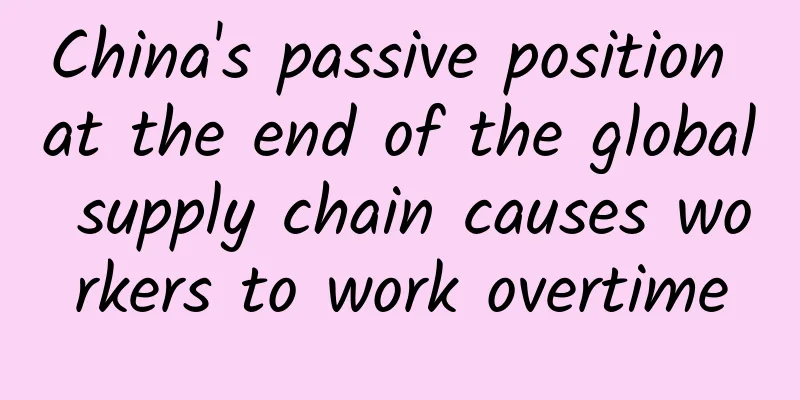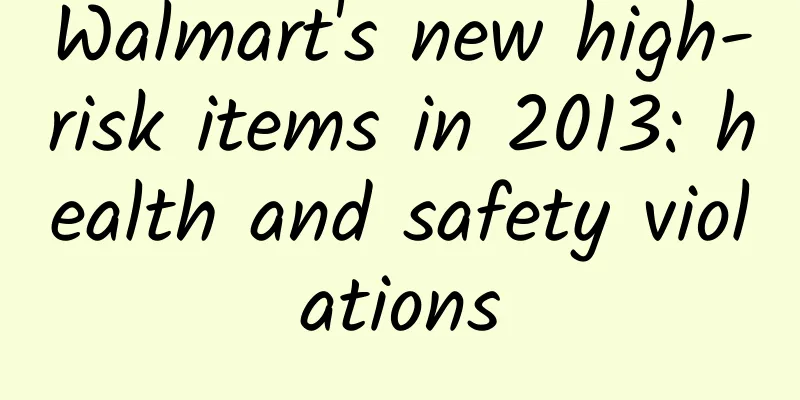China's passive position at the end of the global supply chain causes workers to work overtime

|
This is largely due to China's position at the end of the global supply chain. Processing companies cannot control the time and quantity of orders they accept. "When orders are dense, workers are bound to work overtime," said a third-party factory inspector. Factories that gradually shorten working hours by improving management are favored by multinational companies because of this - more orders come in, quickly breaking the factory's fragile working time management system. All multinational companies that use China as a production base find it difficult to solve the problem of workers working overtime. Foxconn is likely to become the target of public criticism again. Just as people were gradually forgetting the 12 incidents of employees jumping off buildings in its factories in mainland China before June this year, a 23-year-old male worker at Foxconn's Shenzhen campus once again jumped off a building and committed suicide in the early morning of November 5. What is more troubling to Foxconn than the "13th jump" is the public criticism by Guo Jun, director of the Democratic Management Department of the All-China Federation of Trade Unions, on November 3. He accused Foxconn of making employees "work overtime for more than 100 hours per month" (equivalent to 65 hours per week), which seriously violated the Labor Law's stipulation that workers' weekly working hours (including overtime) should be no more than 48 hours. But Foxconn is not an exception. For the vast majority of multinational companies that have suppliers in China, they can only barely ensure that workers do not work more than 60 hours a week. Since the mid-1990s, when multinational companies began to use their own inspectors or hire third parties to urge suppliers to improve workers' living conditions through "factory inspections", factories have made some improvements in eliminating child labor and ensuring safe production. The only problem that cannot be solved is overtime work. "Currently, less than 20% of factories in China can work no more than 60 hours," said an NGO staff member who participated in the formulation of the social ethics standard SA 8000 (one of the internationally accepted factory inspection standards). This is largely due to China's position at the end of the global supply chain. Processing companies cannot control the time and quantity of orders they accept. "When orders are dense, workers are bound to work overtime," said a third-party factory inspector. Factories that gradually shorten working hours by improving management will be favored by multinational companies because of this - more orders will come in, quickly breaking the factory's fragile working time management system? Suppliers have to find ways to deal with the high-level Labor Law: the usual methods include obtaining temporary overtime certificates from local labor departments, or negotiating with workers - the worst is to falsify work time records. Software specifically designed to write work time records has appeared on the market, and they are being made more and more perfect. A factory inspector of a multinational company said: "If it is just to get rid of public condemnation, to make a gesture to delegate the factory inspection work to a third-party inspection agency, or to simply try to maintain the Labor Law on paper, the work time issue will eventually become a 'Paper Work' between the government, multinational companies and the inspected factories." Some people believe that this deadlock can be slowly untied through the cooperation of responsible multinational corporations, NGOs, third-party factory inspectors and local Chinese governments: multinational corporations properly arrange production; NGOs follow factory inspectors to ensure fairness; local governments should face up to the current situation that the Labor Law has been widely violated and effectively promote local companies to improve management. But Guo Jun also accused Foxconn of neglecting to pay attention to people in his speech on November 3. "This is more difficult to solve than the working hours issue," said the NGO worker. "It is something that even factory inspections and standards cannot touch and manage." Multinational companies audit or evaluate factories according to certain standards. This kind of inspection is generally divided into two types: human rights inspection and quality inspection. Human rights factory audits are also known as social responsibility audits, social responsibility factory assessments, etc. Usually, the social responsibility department of a company authorizes a neutral third-party organization to review whether the company that applied to pass a certain standard can meet the standards. There are two ways to conduct human rights factory inspections 01 Before purchasing products, multinational companies will review Chinese companies according to their own specially formulated social responsibility standards. Only a few large multinational companies have their own corporate codes of conduct, which is also called second-party certification. 02 Before purchasing, multinational companies require Chinese companies to pass certain international or industry-wide social responsibility standards developed by NGOs and obtain qualification certificates as the basis for purchasing. Such standards mainly include SA8000 (applicable to all industries), ICTI (toy industry), EICC (electronics industry), WRAP (apparel, footwear and hat industry) in the United States, and BSCI (applicable to all industries) in Europe. This method is called third-party certification. What does human rights factory audit include? Whether child labor is used, whether forced labor occurs, whether workers can obtain the right to freedom of association, wages and overtime hours, whether workers' health and safety are guaranteed, working and living environment, whether discrimination and harassment occurs, whether workers can obtain insurance and other statutory benefits, etc. The composition of multinational companies' own factory inspection standards 01 Human rights clauses in the United Nations Charter and international labor standards established by the International Labor Organization. 02 Standards promoted by various NGOs, such as SA8000, BSCI, ICTI, etc. 03 Laws and regulations of the company’s location. Source: China Business Network |
<<: Coca-Cola factory audit content - freedom of association/discipline and routine
>>: First Financial Weekly: Foxconn’s 48-hour deadlock
Recommend
How is Qibang International? What services does Qibang International provide?
How about Qibang International? Qibang Internatio...
How much is the eBay listing fee? How do I pay the eBay listing fee?
How much is the eBay listing fee? When you launch...
What are the prohibited and restricted items on eBay?
1) Try to use a simple, clean solid color backgro...
Reasons and solutions for enterprise order loss
After the summer solstice, new summer clothes are ...
Pinterest — “Twitter for Pictures”
Pinterest uses a waterfall flow to display image ...
ISO14001 standard solid waste treatment
Questions about ISO14001 standard solid waste trea...
What is luggage and mail customs clearance? What are the precautions for luggage and mail customs clearance?
What is luggage customs clearance? Luggage and ma...
Benefits of implementing ISO14000 environmental management system certification
Implementing ISO14000 environmental management sy...
Misunderstandings about the ownership of certification work when implementing ISO9000 certification in small and medium-sized enterprises
Misunderstandings about the ownership of certific...
What are the advantages of bestseller factory audit?
What are the advantages of bestseller factory aud...
How is Xiji.com? What services and advantages does Xiji.com have?
How about Xiji.com? Xiji (www.xiji.com) is an int...
The cross-border e-commerce team is growing! Tangshan Cross-border E-commerce Association is officially established
On August 30, 2019, the inaugural meeting of Tang...
What is Luxury Promise, which allows you to buy and sell properties from home? What is the operating model of Luxury Promise?
What is Luxurypromise? Luxurypromise is a second-...
What is Undelay? What are the functions of Undelay?
UndelayStart optimizing your mobile traffic! Crea...
What is Cross-border Talent Network? How is Cross-border Talent Network?
Making cross-border job hunting and recruitment e...









